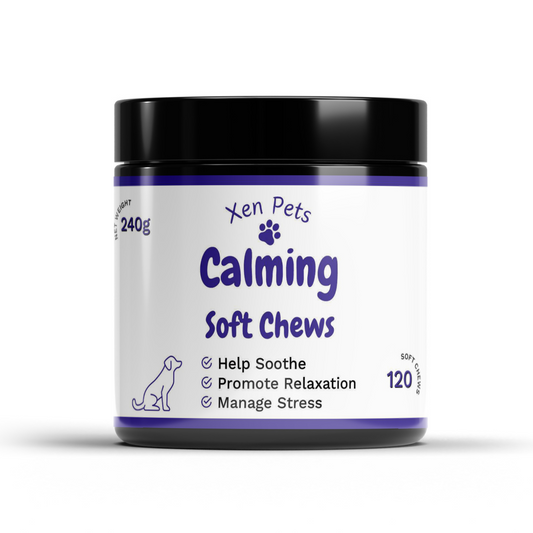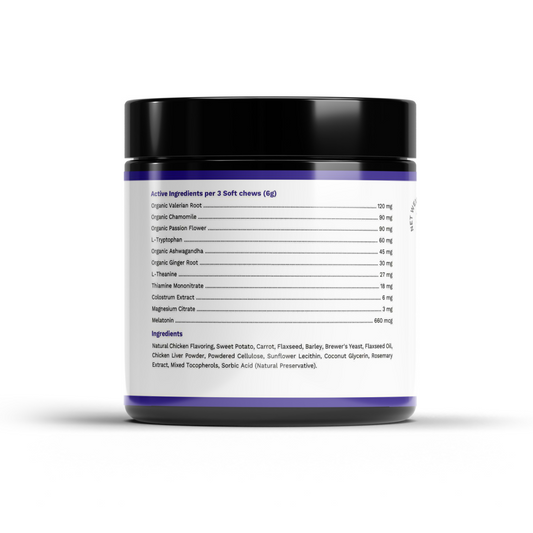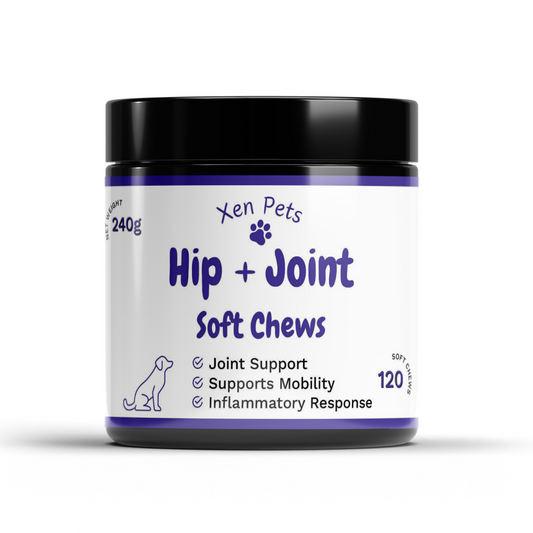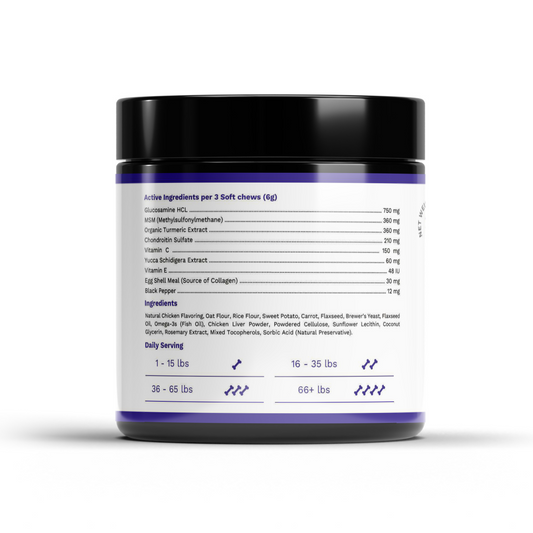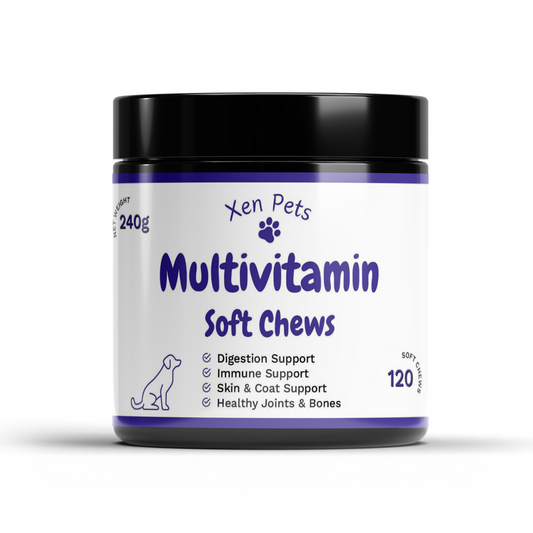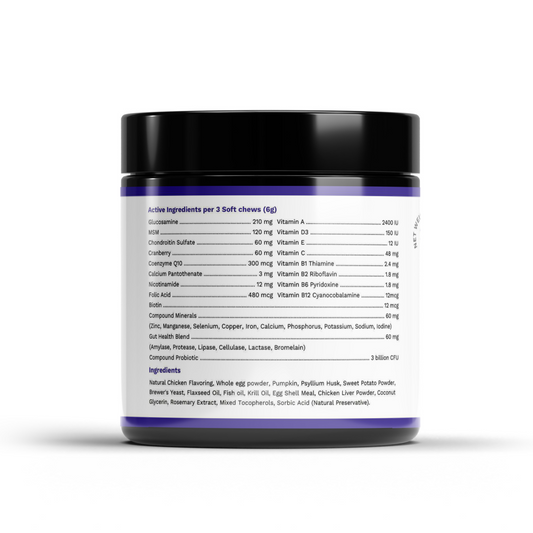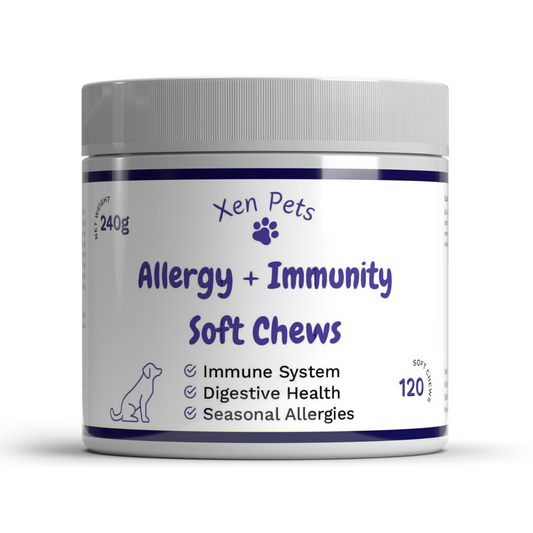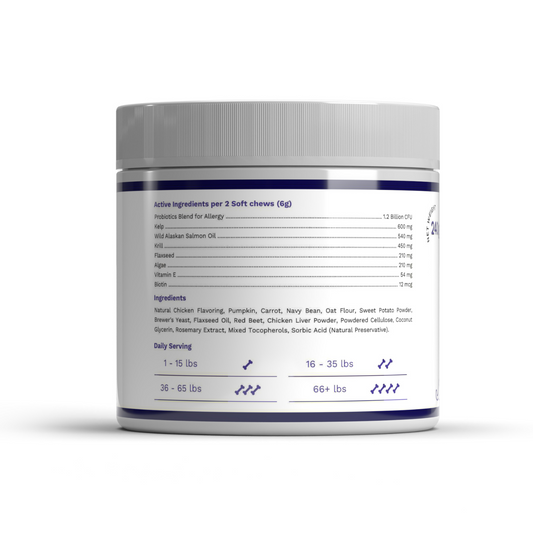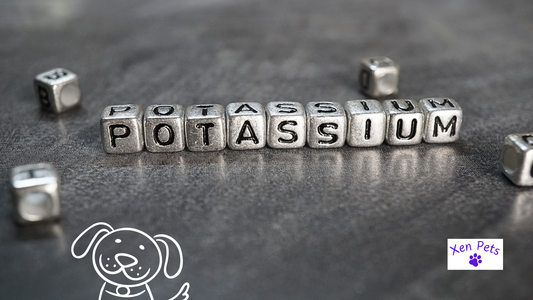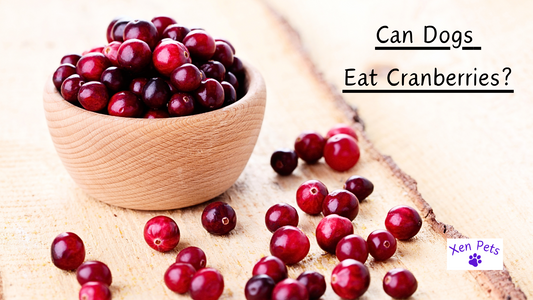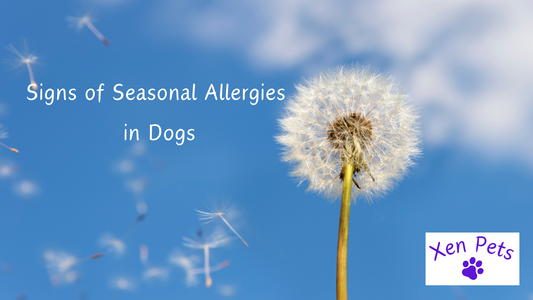Vitamin K for Dogs: Benefits, Deficiency, Dosage, Food Sources, and More
Tory JohnsonShare
Is your dog receiving all the nutrients they need to remain healthy? Vitamin K is an essential nutrient for canine well being, but many dog owners don't know much about it.
Every pet parent wants their dog to be fit and thriving, so understanding the role of vitamin K in your dog's diet can make all the difference.
In this article, we'll uncover everything you need to know about vitamin K for dogs: including its benefits, sources, and signs of deficiencies.
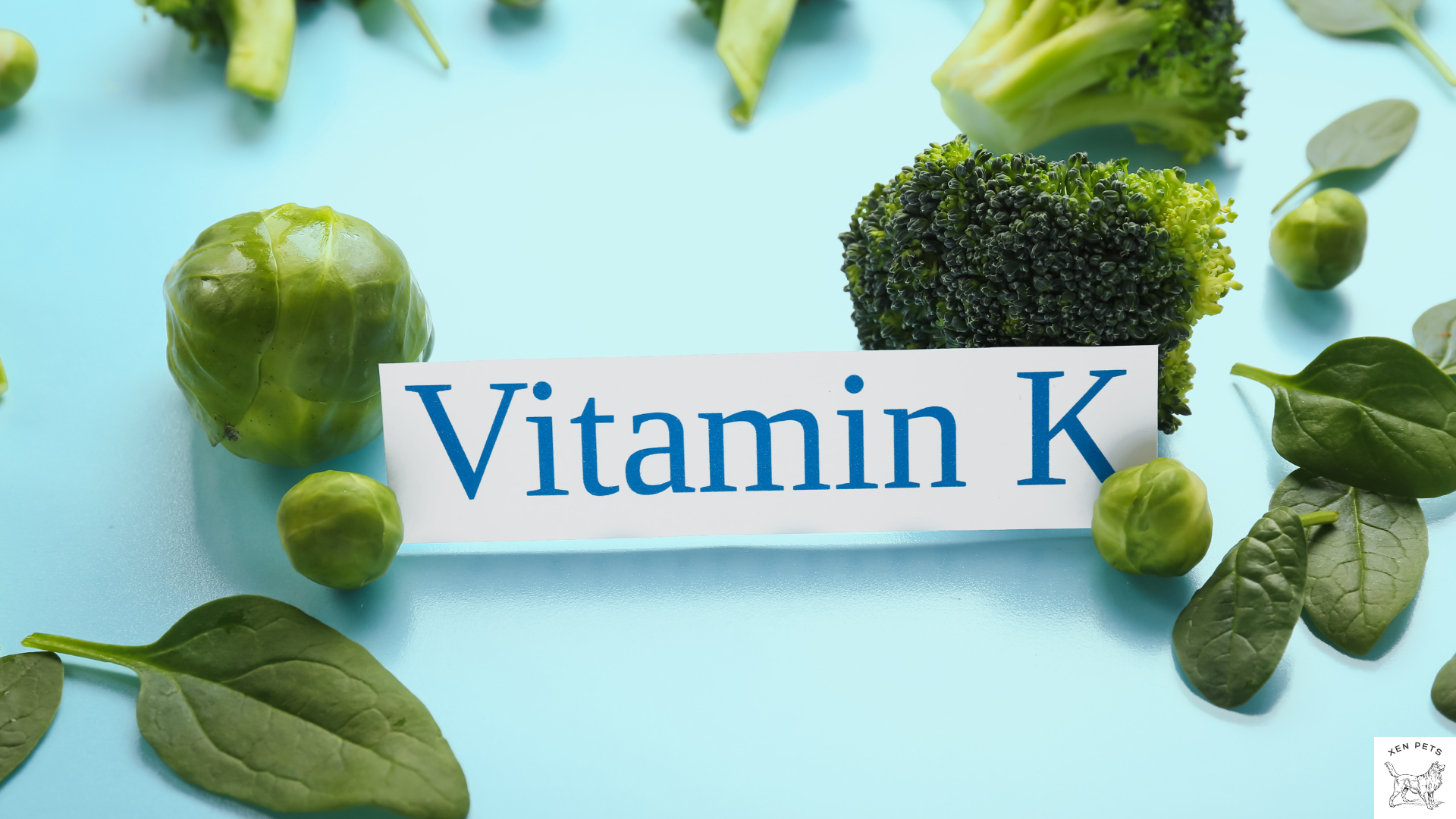
What is Vitamin K?
Vitamin K is a fat-soluble vitamin that plays an important role in blood clotting. This crucial nutrient ensures that wounds heal properly by producing proteins that aid in blood coagulation.
It also helps to transport calcium and prevents its buildup in organs and soft tissues. Dogs require vitamin K in their diets to maintain proper health, as deficiencies can lead to prolonged or internal bleeding or hemophilia.
Puppies, for instance, are born with lower levels of vitamin K and depend on their mothers' milk to acquire the vitamin.

However, some medical conditions and certain medications can interfere with their absorption of vitamin K. Therefore, it's essential for pet owners to provide your dog with a well balanced diet that includes enough of this vital nutrient.
If your dog has liver disease, you may notice prolonged bleeding and excessive bruising. In these cases, your veterinarian may suggest supplementing your dog's diet with vitamin K. Vitamin K is essential for blood clotting, and dogs with liver disease may have difficulty producing this vitamin on their own.
Vitamin K1 and vitamin K2 are the two different forms of vitamin K, and they differ in their chemical structure and biological function.
The key difference between these two forms of vitamin K lies in their source and biological function. While both are essential for optimal health, they play slightly different roles in your dog's body.
Vitamin K1
Vitamin K1 is essential for blood clotting and helps in the synthesis of proteins that are important for bone health.
Vitamin K2
Vitamin K2, on the other hand, is found in animal-based products such as meat, dairy, and eggs. It aids in the activation of proteins that are crucial for bone and heart health.
Foods with Vitamin K for dogs
Let's take a look at additional sources of the two K Vitamins.
Safe dietary sources of Vitamin K1
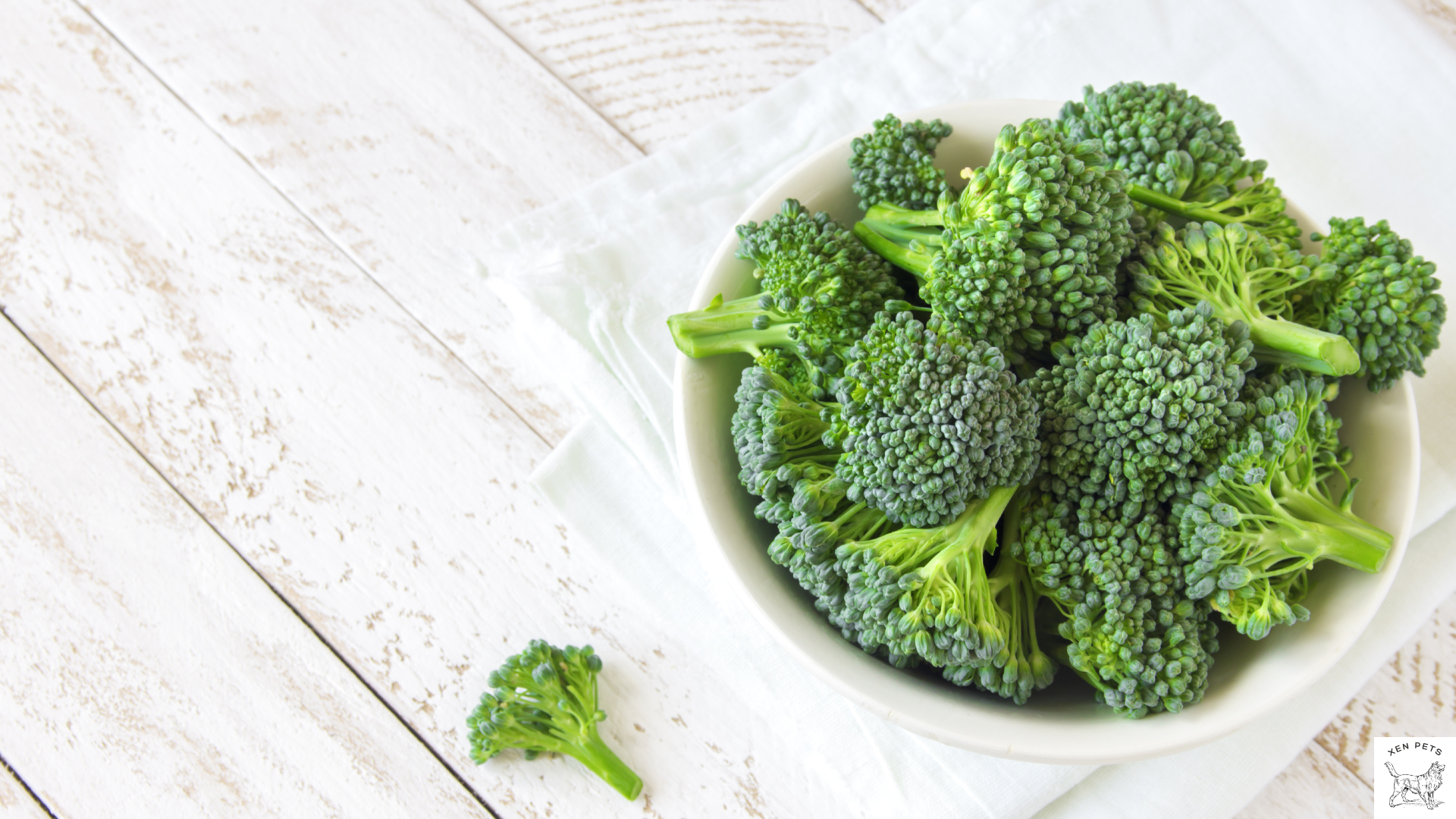
- Broccoli
- Turnip Greens
- Cabbage
- Peas
- Brussel sprouts
- Green beans
Safe dietary sources of Vitamin K2
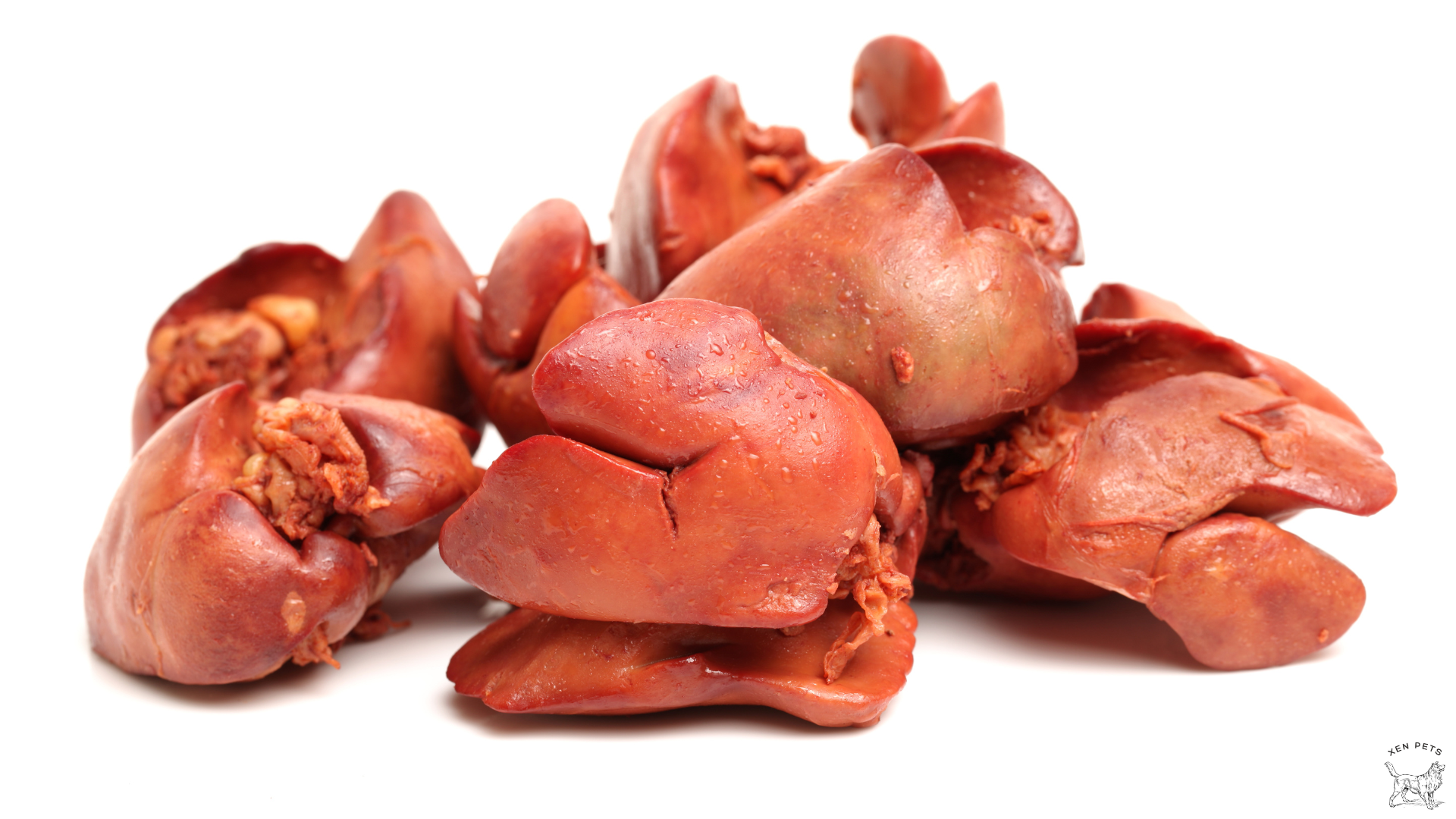
- Cheeses
- Pork
- Ground beef
- Chicken
- Liver (E.g. Pork, beef, or chicken liver)
- Eggs
Vitamin K dose for dogs
In order to properly administer vitamin K1 to your dog, it's important to follow the recommended dosage guidelines set forth by your veterinarian. Typically, a dosage of 0.5 to 2.5 mg/kg/day in a single or divided dose is appropriate.
Additionally, it's crucial to administer the vitamin with a mildly fatty meal to ensure maximum absorption.
Signs of a Vitamin K deficiency
A deficiency of vitamin K is rare in dogs, mostly because they can synthesize their own vitamin K.
However, when a dog has an underlying condition or is taking certain medications like a blood transfusion, it can affect their normal blood clotting abilities by depleting this vitamin.
Without enough vitamin K, clotting factors and proteins in the blood that help to stop bleeding won't function properly.
This can lead to prolonged bleeding times, increased risk of bruising, and in severe cases, uncontrollable bleeding that can be life-threatening.
It's important to recognize the early signs of a vitamin K deficiency, such as lethargy, weakness, pale gums, and unexplained bleeding, and seek veterinary assistance immediately.
Vitamin K for dogs who ate rat poison

Anticoagulant rodenticide poisoning, also known as mouse and rat poison, can be a serious concern for dogs.
Rodenticide poisoning depletes vitamin K, affecting blood coagulation and leading to a vitamin K deficiency.
Therefore, it's important to keep rodenticide out of reach of pets and seek immediate veterinary attention if ingestion is suspected.
Vitamin K for dogs side effects
Fortunately, when it comes to getting their daily dose of vitamin K, dogs have little to worry about.
Both K1 and K2 forms of vitamin K are considered safe for ingestion by dogs either through their diet or via supplements.
There are no known toxic side effects of either form of vitamin K, so you can rest assured that your dog is getting the nutrition it needs without any worry or risk.
That being said, it's always best to consult with your veterinarian before adding any supplement to your pet's diet, as some dogs may experience an allergic reaction when given vitamins K1 or K2 via injection.
Bottom line
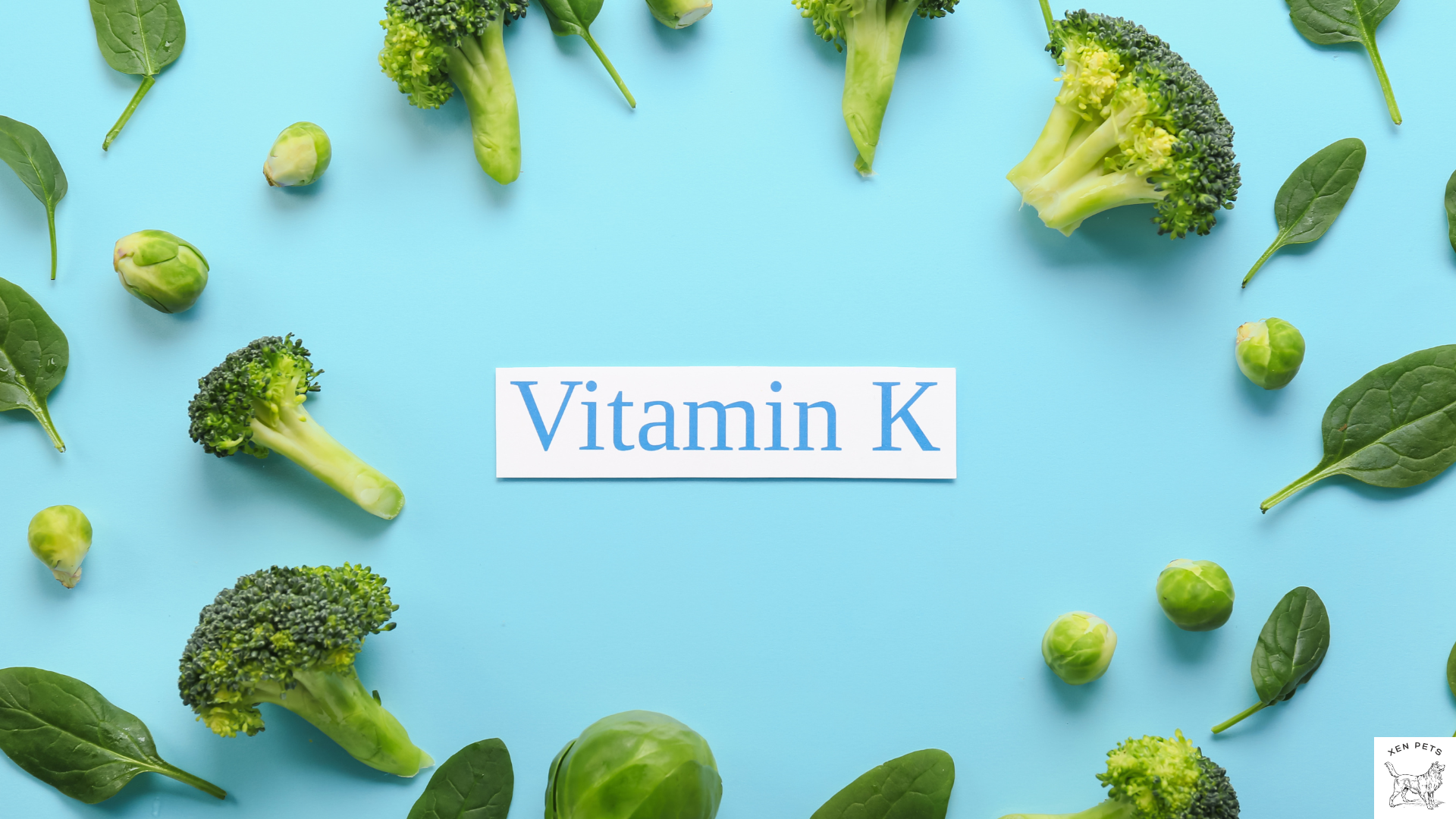
All things considered, it's clear that vitamin K is an essential part of every dog's diet.
Vitamin K promotes healthy blood clotting to prevent potential blood disorders and speeds up the healing process for wounds. Not only does it prevent calcium buildup in vital organs, but it helps to transport calcium for better bone health.
Pet parents should be aware of the different types of vitamin K—K1 and K2—as well as potential sources and signs of deficiencies. While not all dog owners may understand the importance of this nutrient, arming yourself with knowledge about vitamin K can make all the difference for your dog.
If you want to provide your dog with a balanced diet to ensure their overall wellbeing, be sure to consider incorporating enough sources of vitamins into their daily meals.
To learn more about dogs and vitamins, check out our Nutrition Guides.

